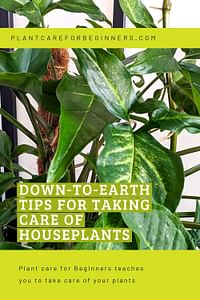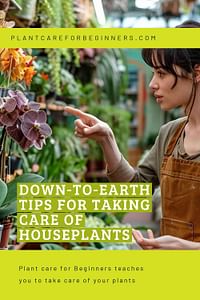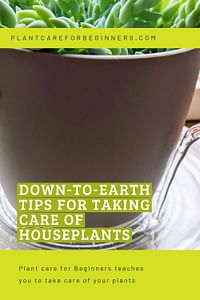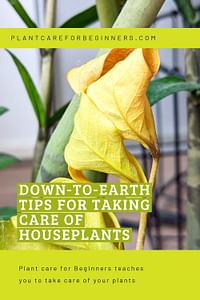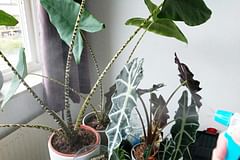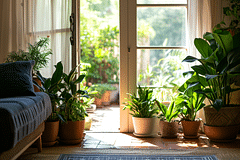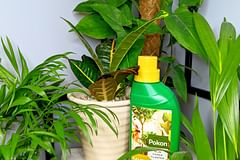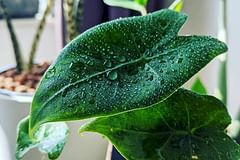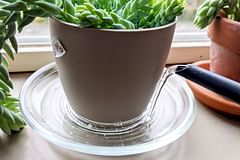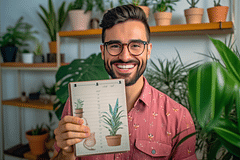Down-to-earth tips for taking care of houseplants
Start your plant care journey with realistic expectations with these down-to-earth houseplant tips! Get real, actionable tips on picking plants that match your lifestyle, setting up their ideal environment, and caring for them with a calm mind and confidence.
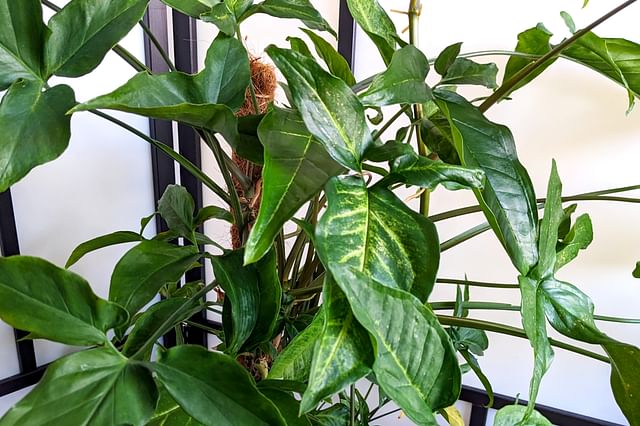
Key learnings from this plant care guide
- Before bringing plants home, research their specific needs and compatibility with your living conditions to ensure successful care.
- Embrace the simplicity of low-maintenance plants and understand that being an "easy" plant parent is still an accomplishment.
- Choose houseplants that align with your lifestyle and available time commitment to ensure a stress-free experience.
- Give your plants their space by avoiding excessive handling and providing them with enough room in their pots for optimal growth and health.
Getting started with houseplants? That's great! Welcome to the club! You'll probably have seen videos on social media about taking care of houseplants and they made it look easy. Don't worry, it is, but let's get real: behind all those awesome Instagram pics and endless advice, there's a truth not everyone talks about.
Taking care of plants is both an art and a science. It's about getting to know your plants beyond the care tips, being patient, and sometimes, just letting them be. Sounds a bit strange, right? Well, here's a down-to-earth guide to becoming a plant parent, from someone who's started from scratch and learned a lot along the way.
Let's look at the best advice I can give you about taking care of plants, beyond the plant care tips.
Before you get your first plants
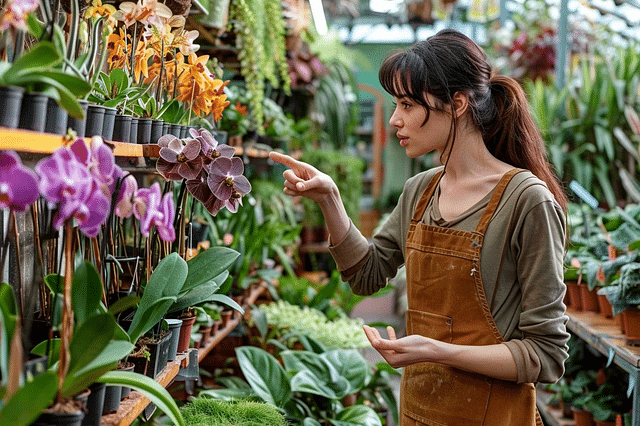
Before your place starts looking like the Amazon Rainforest, it's a good idea to stop and think things through. Here's what you'll need to start your little green paradise at home:
Research a plant before buying
Going to a plant store and picking up the best-looking plant is the easiest (and most dangerous for your wallet) part of taking care of plants. Once you bring it home, you have to take care of it. But what if you picked up that one plant that needs direct sunlight all day and you live in a dark apartment? It probably won't work.
Before you buy any plant, make sure to do a little research. Don't you have a lot of free time? A high-maintenance plant might not be the best idea, but a cactus or succulent is perfect. Do you have an apartment that's always very cold? Perhaps it's best to skip the tropical plants.
When you research, don't stop at the care tips, but look a little closer. Where does your plant come from? What's its natural habitat like? How can you make your home more like that?
Don't think the easy choice makes you less of a plant parent
When taking care of plants, simplicity is almost always the right choice. For example, self-watering pots are an amazing option for you and your plants if you often forget to water your plants or you are busy.
But even looking at the plants themselves. The easiest, low-maintenance, hard-to-kill, houseplants are still houseplants. Choosing one of these plants is still a great way to bring nature into your home. Not everyone needs to take care of a difficult Calathea, especially if you just don't have the time for it.
Did an "easy" plant die on your watch and you feel like you've failed? Everyone makes mistakes, and you'll learn with experience. I can't even count the number of plants that I've killed. Taking care of plants is an ongoing learning process.
Pick a plant that fits your lifestyle
And last but not least, you need to pick a houseplant that fits your lifestyle, not the other way around. If you're very busy, pick a low-maintenance plant. If you have more time to spend with your plants, it can be a fun challenge to get one of those hard-to-care-for houseplants.
Taking care of plants should feel easy and fun, not stressful.
Give your plants their personal space
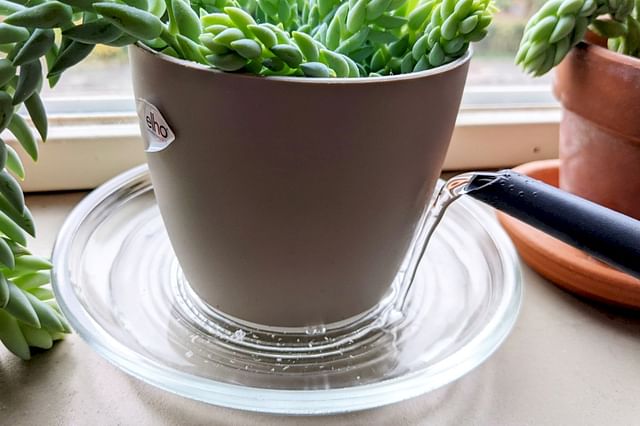
Plants are a lot like introverts; they need their personal space. This has 2 meanings because you shouldn't handle your plant too much, but you should also give them enough space in their pot to stay healthy. Let's see why.
Leave your plants alone
When you handle your plants too much, water them too much, or constantly move them around, they get stressed. Stressed plants are much more likely to suffer from pests and diseases, so it's best to let them be.
Plants aren't pets, they don't need your constant attention, and they're quite happy when you forget about them for a while. Some plants want your attention once per week, like most tropical plants, while others would rather be left alone for 3-4 weeks like succulents and cacti.
In general, the less you mess with your plants, the happier they'll become. Water them regularly, give them a good spot in your house, leave them alone, and watch them thrive.
The "Why" over the "How" approach
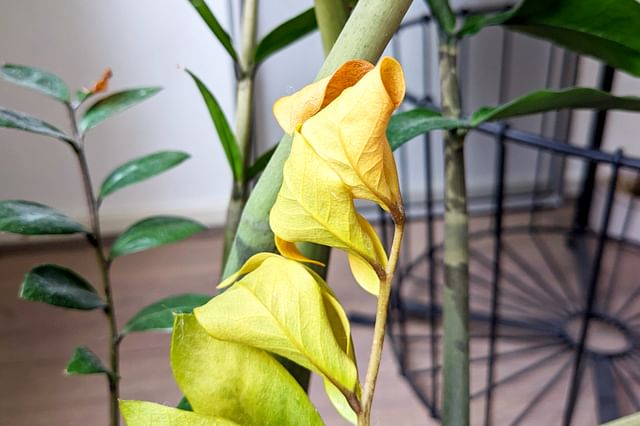
Eventually, you will have to deal with a problem on your plant. If you only have a few plants, it could take a while before something goes wrong, but it will happen eventually. This is just part of being a plant parent.
Pause, think, act
When you spot something different with your plant, pause and think. Is it in a new spot in your home? Have you changed your care routine? Have the seasons changed outside? Sometimes, the problem is very obvious. If something has changed, your plant might be stressed and the best solution is to do nothing. Let your plant be. It'll get used to the new situation and recover.
In times of trouble, just stay calm and don't act before doing a bit of research.
Why is your plant experiencing problems?
The easiest plants will talk to you, but you need to learn their language. Is it wilting? Are its leaves yellowing or drooping? Knowing why your plant is showing these symptoms is your best chance of plant success.
When you search for the symptoms online, don't just look for solutions, but try to understand why something is happening. When you know what happens, you'll know what to avoid doing in the future.
This is one of the reasons I always try my best to explain what's happening with your plant in my plant care guides and I always encourage you to reach out if you have any questions.
What works for others might not work for you
It's great to swap notes with other plant owners, but what works for their houseplants might not work for your plants. Their house might be warmer, and more humid, or they have many houseplants growing close together. The growing conditions will be different from yours, so keep swapping notes, but also keep experimenting and learning yourself.
Thank you for reading this post! I hope it helps you to keep your plants healthy and beautiful! If you're looking for more guides on specific plants, you can always request a plant guide to get a guide for the plant you have trouble with.
Test your plant care knowledge
Quiz completed!
Want to learn more? Sign up for my newsletter to receive free tips in your inbox!
Sign up now!
